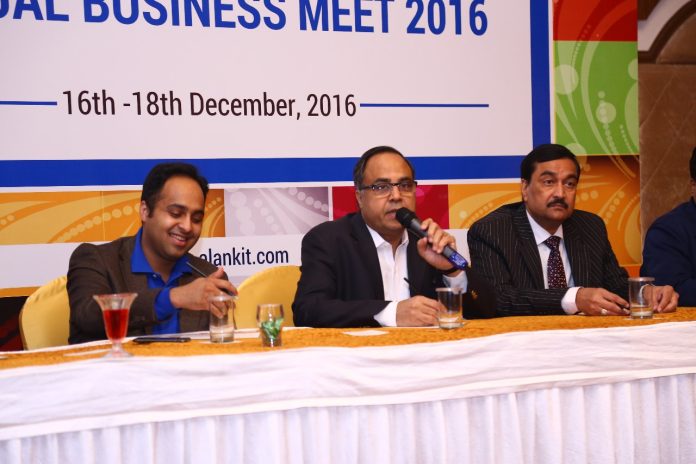“As India’s fintech sector continues to evolve, digital lending and other credit strategies could well be the key to unlocking the true potential of MSMEs, shaping a resilient future for the nation’s economy,” suggest Alok Kumar Agarwal.
As India’s Micro, Small, and Medium Enterprises (MSMEs) surge as key drivers of economic growth, financing these enterprises has become eminent for sustaining and scaling the nation’s economy. Alok Kumar Agarwal, a prominent thought leader in India’s Financial Sector and the former Managing Director of Alankit, is at the forefront of reimagining credit access for MSMEs, leveraging digital innovation to break traditional barriers. MSME Financing through Digital Lending
Explaining MSME’s financing through digital lending, Alok Kumar Agarwal mentions, “India’s MSMEs represent over 30% of the GDP and employ millions, yet they face an annual credit gap estimated at $240 billion. Traditional lending models, often bogged down by lengthy approval processes and extensive paperwork, fail to cater to the dynamic financing needs of MSMEs. Envisioning digital lending as a solution, tapping into fintech can be to facilitate faster, simpler, and more accessible credit.”
Key Benefits of Digital Lending for MSMEs
Digital lending offers a transformative approach to financing MSMEs, addressing speed, accessibility, and collateral requirements in ways traditional banks cannot. By leveraging digital KYC, automated credit scoring, and streamlined application processes, fintech platforms enable MSMEs to secure funds in a matter of hours rather than weeks.
“Unlike conventional banks, which often demand high collateral—a barrier for many small businesses—digital lending models assess creditworthiness based on business data, reducing the reliance on collateral,“ says Mr. Alok Kumar Agarwal. Adding further, he says, “Also sees digital lending as a powerful tool for financial inclusion, particularly for MSMEs in rural and semi-urban areas that are underserved by formal banking.”
By using digital footprints such as e-commerce transactions, GST data, and account statements, fintech opens up credit access to a wider audience, making finance more democratic and empowering MSMEs to drive India’s economic growth.
Role of Embedded Finance in MSME Empowerment
For Mr. Alok Kumar Agarwal, embedded finance represents the next frontier, where financial services integrate directly into MSME business platforms, creating seamless financial interactions and simplifying complex processes.
Embedded finance is revolutionizing MSME operations by integrating financial services directly into their business environments, providing seamless access to essential tools and resources. This approach enables MSMEs to obtain instant credit lines directly through their existing systems; for example, retailers can access short-term loans to meet seasonal demands right at their Point of Sale (POS) terminals. “Furthermore, embedded finance includes automated invoicing and payment solutions, reducing administrative tasks and allowing businesses to reconcile accounts in real-time, which enhances their visibility into financial health. This integration also improves cash flow management, helping MSMEs avoid the cash shortages that often hinder growth, thus creating a smoother, more efficient financial ecosystem for small businesses,” Alok Kumar Agarwal mentions.
Role of Technology in Risk Management
Alok Kumar Agarwal opines using AI and machine learning to develop custom credit scoring models for MSMEs which allows advanced algorithms to analyze diverse data points such as transaction volumes, online reviews, and supply chain relationships. This data-driven approach offers a more accurate picture of an MSME’s financial health than traditional methods. Big data further enhances predictive analytics, enabling lenders to gauge creditworthiness by examining past behavior and market trends, which is particularly valuable for supporting MSMEs in high-risk sectors.
“With these tools, financial institutions can make more responsible lending decisions, reducing default rates and extending credit to a broader range of borrowers. For MSMEs, this tech-driven risk assessment translates into easier and more reliable access to funds, supporting sustainable growth and addressing one of the core challenges in MSME financing: managing credit risk without limiting potential,” explains Alok Kumar Agarwal.
Alok Kumar Agarwal’s vision for MSME financing is transformative, addressing fundamental barriers through digital lending, embedded finance, advanced risk assessment, and progressive policy advocacy. By enabling MSMEs to access credit with ease, manage cash flow efficiently, and operate within a supportive regulatory environment, Mr. Alok Kumar Agarwal’s blueprint has the potential to revolutionize India’s credit landscape.


